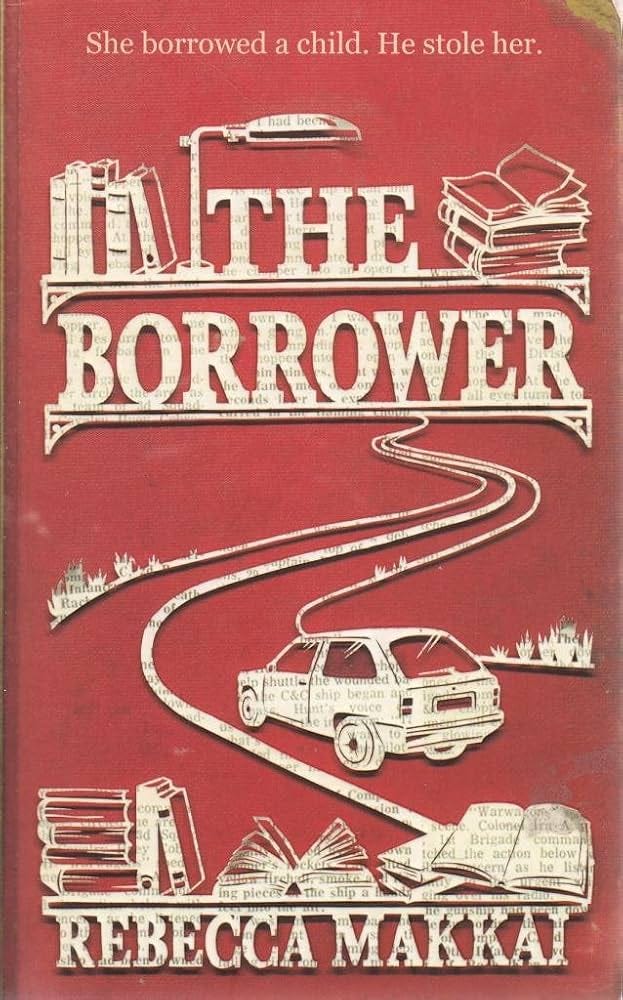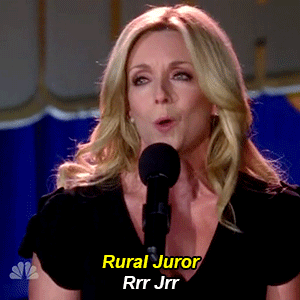Thirteen years and a few days ago, my debut novel (The Borrower) did its thing and debuted. At the time, I felt like the success of that book was everything; every win or failure was a prognosis for my entire career. Thirteen years and four books later, I can look back on it simply as a debut, my foot in the door, my first entree into the publishing world. It’s a perspective I really wish I’d had at the time.
So, with thirteen years of hindsight, and in no particular order, here are thirteen thoughts on that first book:
1. I’m devastated by how timely it’s become again
Here’s what I wrote about the book on my socials the other day:
It's about a librarian who inadvertently kidnaps a 10-year-old patron. It's also about a boy whose conservative parents, fearing he's gay, restrict his reading. When the book came out, that topic felt like a vanishing concern.
The book came out in 2011, but to make it more believable, I set it in 2004.
People sometimes refer my "first book" and (understandably) they mean The Great Believers (my 4th). If you want to check out my ACTUAL first book, this is it. I promise it's more galvanizing than depressing. I'd give anything for it to be irrelevant now.
2. This book took me ten years, which is not unusual
I began this book when I was about 23 and had very little business writing a novel, and it came out ten years later; by then I’d published a bunch of stories and had two children. (I took my author photo when I was pregnant and morning sick, with a toddler hanging off my leg. I turned in my copyedits about twelve hours before my scheduled C-section for the younger one, who is now also thirteen.) I had no idea how long novels were supposed to take (I didn’t have a writing community, I don’t have an MFA, and at the time I knew about three writers) so fortunately I didn’t beat myself up about the ten years. And as it turns out, five to ten years is pretty normal for a first novel! Or at least a first publishable novel. Your buddy who cranked out that book in two months and is now shooting it off to agents might have won the land speed record, but let’s wait and see what happens there.
3. I thought my career was over with my first bad review
If you’re lucky, you get some pre-publication “trade” reviews before the book is out. The first one I got was a lovely starred review from Booklist, and I wasn’t nearly grateful enough because I didn’t really understand what a big deal that was. The second review was… I’m not gonna say brutal, but bad enough that my agent called to warn me about it before I saw it.
And I genuinely thought it was all over; this was going to be the end of my career. That night, my husband and I had tickets to see David Sedaris and I sat there in the middle of the audience like a zombie. I was the only person not laughing at a David Sedaris reading.
I also looked at Goodreads too much, and remain scarred by my very first “I wanted SO badly to like this book…”
4. People assumed it was about me
A funny thing about first novels: Readers are much more likely to assume they’re autobiographical—even when the book is about, you know, someone literally kidnapping a child. Doubly so when it’s a first-person novel, and the character is vaguely in the same demographic as the author. (And, as others have pointed out, readers are less likely to assume an act of pure imagination on the part of women or writers of color.)
I got a lot of reviews that wondered if I knew it was wrong to kidnap children. I got a lot of interview questions along the lines of “When you got to Chicago, why did you tell Ian that….” Sometimes they’d then catch themselves, sometimes they wouldn’t.
This wouldn’t have bothered me quite as much if I hadn’t still been teaching elementary school when the book came out (I switched to part time the following school year and then stopped) and I was devastated that anyone might think I was writing about one of my students.
5. People thought it was YA
Since no one knew me or my writing yet, it was really hard to get people to understand that a book about a children’s librarian and a child was not, in fact, a book for children. That said, I probably sold a few extra books to people who thought it would be a great gift for a preteen, so maybe it’s a win?
6. I said yes to everything
This is kind of what you have to do, to the extent that you can. I slept on couches so I could attend festivals that didn’t pay, I did readings where three people showed up, I hustled in every way I knew. I’d spend all day traveling to a thing where I sold ten books (yay!) and then realize that I’d basically earned ten dollars against my advance for a whole day of work. But it was all worth it. As I said above, this book was my foot in the door. I was meeting booksellers and readers and other writers. I was getting to know the landscape. I was giving myself tension headaches and severe dehydration, but in a good way!
7. It still has a life!
If this had been my only book, I'm quite certain that very few people would still be reading it. Later books, when they do well, have this wonderful way of boosting the backlist (your previous books), and it’s been thrilling to see The Borrower stay in print and sell a few copies every week like the Little Debut That Could. It’s being translated into Polish right now, after the success of my last two novels in Poland—and I’m already anticipating the weirdness of any interviews where I’ll have to grasp for long-forgotten minor character names.
8. I now have another “debut”
Here’s the strange dance I have to do now: Someone says “I just read your first book! So, how long did that one take you?” and I basically have to go “Wow, thank you so much. What, ah—what do you believe my first book to be, exactly?” And like one in ten times, they actually mean this book.
9. I got angry mail about librarians
You’d think librarians might be mad about the kidnapping thing. But no. What some (few, vocal) people did not like was that Lucy, my main character, had been put in charge of the children’s department of a floundering small town library despite not having her MLIS degree. It’s definitely a feasible thing! But I understand why they were upset. Librarians don’t get enough respect. Librarians are skilled superhero professionals with advanced degrees! My character is technically a library worker, not a librarian—although that doesn’t tend to scan well.
10. I was shaking like a leaf at my first event
My very first book event, before the novel was out, was a debut author panel for Chicago’s Printers Row Lit Fest. Patrick Somerville (now a Hollywood bigshot) moderated; Belinda McKeon, with whom I just got to do an event this year in Ireland, was on the panel too, as was Deanna Fei. So was Samuel Park, another Chicago author. We were both absolutely vibrating with nerves. After the event, Sam and I walked around the festival in the rain; we became friends, and he became the person I’d text with publication woes and vice versa. Sam passed away in 2017, before the publication of his second novel, The Caregiver—an absolute masterpiece. You should read it.
11. I can look back with fresh eyes on passages I completely forget
Seriously—I had to look something up this week for my Polish translator and found entire passages that I had no memory of—presumably ones added quite late to the book, so I hadn’t lived with them for ten years. It’s rare that we get to read our own work as if from the outside. What I read did not suck! Granted, I didn’t let myself read much.
12. People will always call it The Borrowers or The Burrurrurr
The title came late—the working title had been The Tin Man Symphony, which means absolutely nothing—and of course it’s a reference not only to libraries, and the borrowing of this child, but also to Mary Norton’s classic children’s novel The Borrowers. With an S. Which is what 90% of people call my book, including when they’re introducing me onstage, or on the radio. I’ve started occasionally slipping up myself. I have no idea anymore which of those books I wrote. Maybe it was the one about little people in the walls. Could I get the royalties for that?
I also didn’t realize that when people said it fast, it would sound like an absolute mouthful of mashed potatoes. Like so:
13. It was easy to lose sight of how lucky I was
Publication is so emotionally hard, and debuts are terrifying. As soon as I started making writer friends, I had people to compare myself to, negatively. It was so hard to remember that publication itself had once been a goal beyond my wildest dreams. That it’s something many brilliant, worthy writers will never manage to luck into.
It’s a hell of a lot easier now to look back and see how well things really went. No, it wasn’t a blockbuster. It didn’t win any awards, and it was on a grand total of one end-of-the-year best books list. But it came out from a major press. It started my career. It had translations. It had pages and a cover and everything! I wrote a book and people read it. People are still reading it. That’s an astounding blessing by any measure.
Wait, a bonus thing—one to grow on:
Ian is in my latest book
Only a few people have told me about finding Ian (who would now be 30 years old) in I Have Some Questions For You, but he’s there. If you missed him, look again.








I listened to the audiobook version 18-months or so ago, and it was how well you voiced the boy that astounded and charmed me, particularly as I was a sensitive, gay child like him who often dreamed of being kidnapped. (By men wearing leather, but that's another story.)
I loved the book, and love you going over everything you went through with it. Some of the reactions are quite comic. People!
I remember reading and loving The Borrower when it came out, and promptly following you on Twitter. Happy book anniversary!